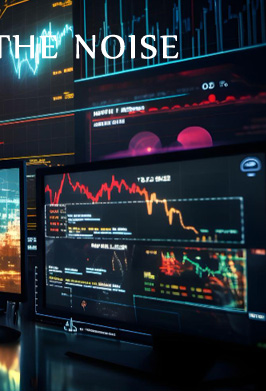|
|
How Buyers and Sellers Affect Stock Price?
Stock prices move up and down in the stock markets according to the transactions executed between stock markets' participants; namely the buyers and sellers. In brief, buyers and sellers keep a stock market alive. When the number of buyers exceeds of sellers, the demand for a stock rises, that will cause the stock price to move upward, and oppositely if there are more sellers than buyers, the higher supply will cause the stock price to drop. Simply put, more buyers trigger price-increase whereas more sellers price-drop.
|
| |
|
|
| |
|
Furthermore the vigorousness of buyers and sellers; how they are eager to buy stocks, will largely affect the price movements and strength of stock trends. Said otherwise, if buyers are poised to purchase at a higher price, it can cause an uptick in price and reversely if sellers sell more aggressive allowing lower prices, there will be an uptick in prices. Aggressive selling flags danger in stock markets. In conclusion, stock prices are determined by the balance of supply and demand in the stock market.
|
| |
|
|
| |
|
Every stock trader knows that stock prices fluctuate because of buying and selling, and it is of paramount important to understand how these transactions move market prices and rule the stock market as a whole. Similarly to a grocery- or flea-market, the vendor at which more perspective buyers are standing will sell more products and probably at higher price. However words of mouth about the vendor will significantly affect how well he or she can perform at selling his or her product. Also on a rainy day fewer customers visit to the market.
|
| |
|
In term of stock markets, any information about a company can significantly affect how people feel about buying or holding the company's stock. Beyond the global stock market news that impact daily stock market trends, as a rule, good news of any sort as good earnings or dividend, recent achievement or product approval from FDA or NDA will raise investors' sentiment and accordingly cause the price to go up, whereas bad news will cause the price to go down.
|

Battle Inflation
Monster

Create From-Home
Career

Act for a Luxury Life
|
| |
|
It is imperative to understand stock markets' 'bid and ask nature'. There are two types of price in the stock market, a bid price and an ask price. The ask price is also called offer price. The difference between bid and ask price is referred to as bid and ask spread. If the bid and ask prices match, a trade is executed. In case of limit orders, stock traders are bidding and offering at different prices, in different quantities, at every moment of the regular trading hours.
|
| |
| |

No Grueling Analysis
|

Massive Profit Rate
|

Lucrative Career
|
|
| |
Through their online broker's stock trading platform, they can cancel or change the orders before order execution, causing the bid and ask prices to change. Investors that buy and sell at currently available market price through market orders aren't posting bids or offers.
In a nutshell, prices go up when there are more Buyers than Sellers and increased demand took shape, whereas conversely, prices fall when there are more sellers than buyers as a result of an increase in supply. This is where trend definition stems from. A continuous rise in price is identified as an uptrend, and a continuous drop as a downtrend.
|
| |
|
|
| |
Have your investments' value witnessed significant drop due to rampant inflation or you just want to see massive returns of your hard-earned dollars? Are you backed by certain stock trading experience, or as an everyday person you've never dived into the stock market but you feel readiness to learn painstakingly in order to reshape your financial wealth?
Then act without delay and look into our game-changer Stock Ticker New Positive Impact Evaluation System. Sign up for our Real-Time News Updates about such US companies' stocks that are poised to soar after market-open. Generate Massive Income from a 3-Hour Day Trading Job!
|
| |

14-Day FREE
Trial
NO Credit Card Needed
|
|
| |
|
|
| © BullishNewsAlerts 2022 - bullishnewsalerts.com
- All rights reserved |
| |
 STOCK PRICE CHANGE
STOCK PRICE CHANGE






 SUPPLY AND DEMAND
SUPPLY AND DEMAND





